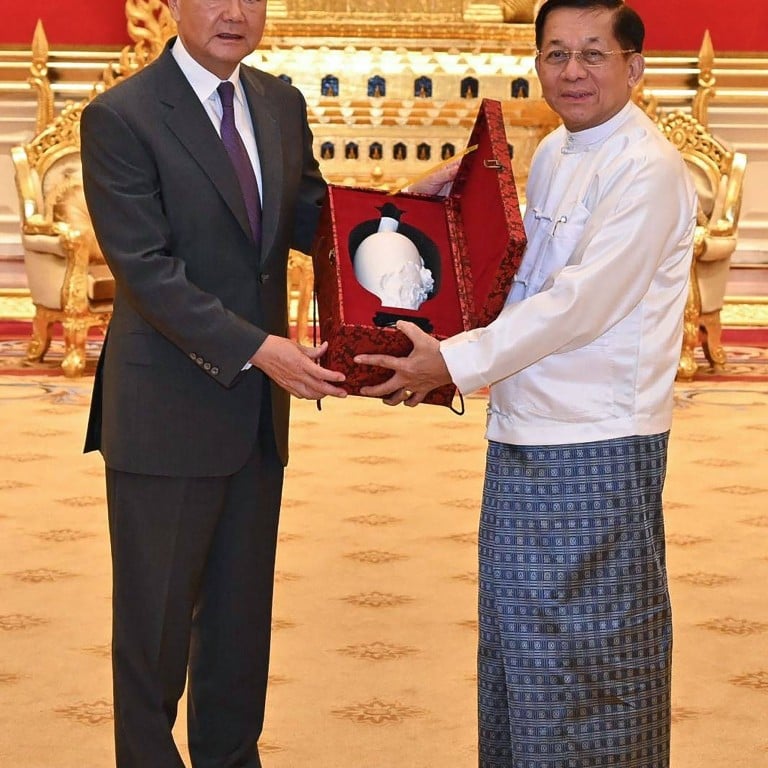
China’s Dangerous Game in Myanmar: Regional Implications and Rising Tensions
The situation in Myanmar, a country deeply fractured by ethnic, religious, and ideological conflicts, has escalated dramatically since the military coup in 2021. This turmoil threatens to destabilize not only Myanmar but the entire Southeast Asian region. As the country teeters on the brink of collapse, China’s role in the ongoing crisis has come under intense scrutiny, raising concerns about the broader implications for regional stability.
Myanmar, with a population of 54 million, is facing an unprecedented humanitarian crisis. The military junta, led by Senior General Min Aung Hlaing, has lost control of nearly two-thirds of the country. The regions now dominated by ethnic armed groups are witnessing brutal conflicts, marked by widespread human rights abuses, including killings, torture, and displacement. The United Nations has reported horrific levels of brutality, with thousands dead and millions displaced. Amidst this chaos, China, a key regional power, is accused of playing both sides in Myanmar’s civil war, a strategy that could have far-reaching consequences.
China’s involvement in Myanmar is multifaceted. On one hand, Beijing has maintained strong ties with the junta, continuing to supply arms and support despite the regime’s growing isolation. On the other hand, China has also allegedly provided covert support to ethnic armed groups controlling strategic border areas, where China has significant economic interests. This dual approach allows China to safeguard its investments and maintain its influence, but it also fuels instability.
Also Read:- The Thrilling Conclusion of the 2024 AIG Women's Open: Who Will Take Home the Trophy?
- SMU Cornerback Brandon Crossley Ejected for Spitting Incident in Tense Clash with Nevada
In recent months, the conflict in Myanmar has intensified. An offensive by northern ethnic armed groups has dealt severe blows to the junta, further fragmenting the country. Reports suggest that China’s security services may have coordinated with these groups, despite Beijing’s public stance of supporting peace and stability. This duplicitous strategy of divide-and-rule has led to a situation where neither the junta nor the resistance forces can fully trust China, yet both are dependent on its influence.
China’s foreign minister, Wang Yi, visited Myanmar recently, ostensibly to promote peace and stability. However, his visit has raised more questions than answers. While Beijing publicly opposes chaos in Myanmar, its actions suggest a deeper strategy aimed at securing its geopolitical interests, particularly along the 1,250-mile shared border. China is concerned about the spillover effects of Myanmar’s disintegration, which could threaten its border security and major infrastructure projects, such as the China-Myanmar Economic Corridor.
The international community, including neighboring countries and global powers, faces a dilemma. While there is an urgent need to address the humanitarian crisis in Myanmar, the challenge lies in how to engage with the fragmented state. Some argue for recognizing the ethnic armed groups as legitimate political entities, despite their authoritarian and undemocratic tendencies. However, this approach risks further entrenching divisions and accelerating the country’s disintegration.
China’s approach to Myanmar has been described as self-serving and short-sighted, focused primarily on protecting its own interests rather than contributing to a lasting solution. This strategy could backfire, leading to greater instability not only in Myanmar but across Southeast Asia. As the crisis deepens, the risk of a full-blown regional conflict grows, with potentially devastating consequences.
So, the situation in Myanmar is a complex and volatile crisis that requires urgent and coordinated international action. China’s involvement, while significant, is part of a broader geopolitical puzzle that includes regional and global powers. The stakes are high, and the path forward remains uncertain. However, what is clear is that the consequences of inaction or miscalculation could be catastrophic, not just for Myanmar but for the entire region.
Read More:

0 Comments